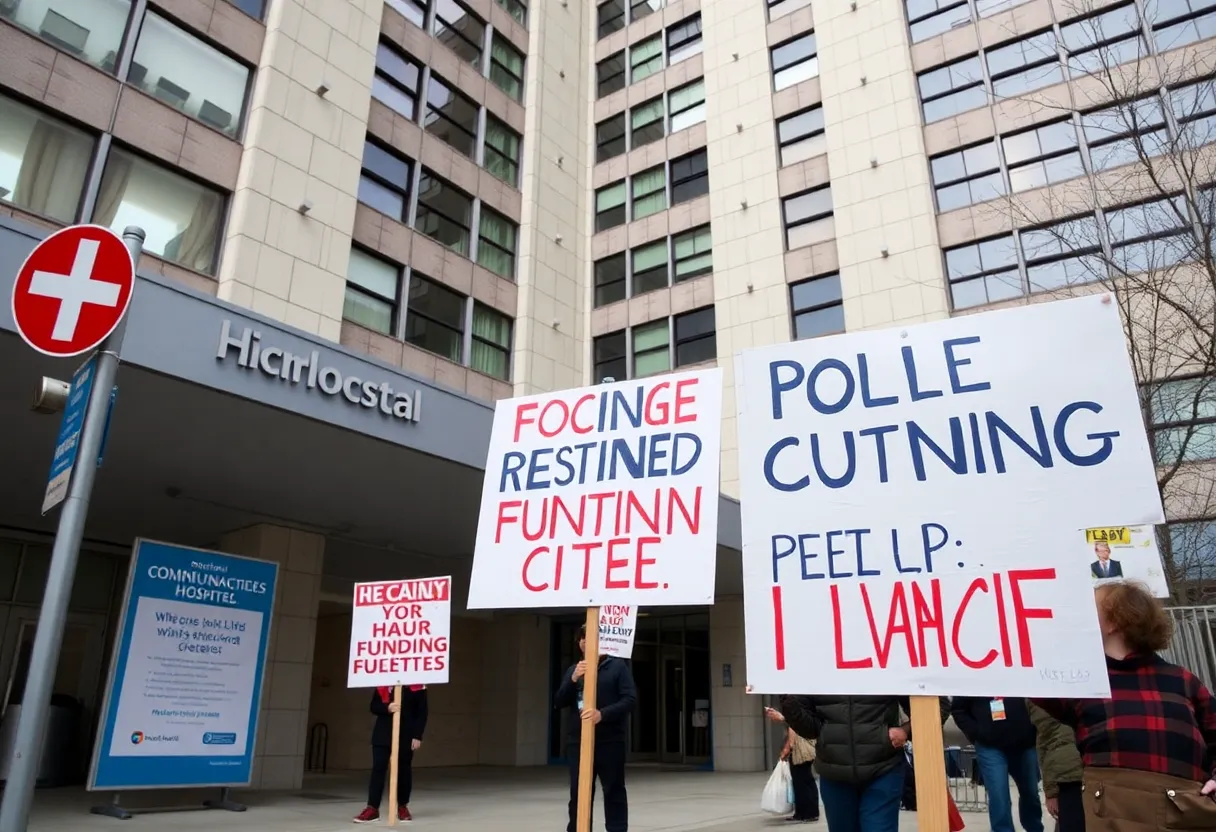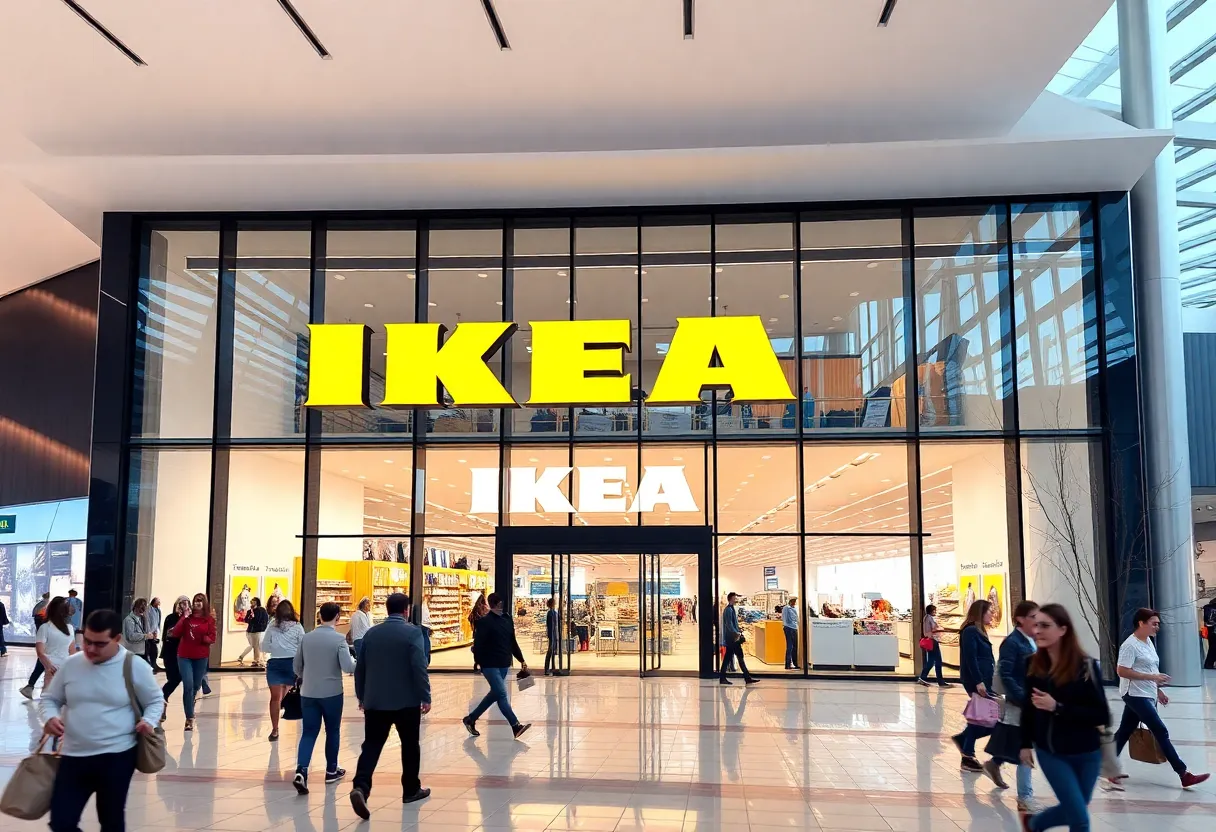News Summary
New York’s safety net hospitals are bracing for significant financial losses due to the One Big Beautiful Bill Act, which cuts Medicaid funding by $1 trillion. This reform could leave 1.5 million New Yorkers uninsured, with dire effects on underserved communities reliant on these hospitals. Experts warn that the cuts may result in the loss of approximately 34,000 hospital jobs in the state and exacerbate existing health disparities. Advocates are urging immediate attention to ensure healthcare access remains viable amid these impending changes.
New York’s safety net hospitals are bracing for significant financial losses following the recent signing of the One Big Beautiful Bill Act by President Donald Trump on July 4. The new healthcare reform legislation proposes $1 trillion in cuts to Medicaid, which health experts warn could destabilize the U.S. healthcare system and leave an estimated 11.8 million additional Americans uninsured by 2034.
In New York alone, the newly enacted law is expected to impose approximately $8 billion in Medicare cuts. This will likely lead to 1.5 million residents losing their health coverage, causing a ripple effect on safety net hospitals that provide essential services to underserved communities. The cuts will not only impact Medicaid patients, but also those with private insurance who rely on these hospitals for their care.
Dr. Sandra Scott, CEO of One Brooklyn Health, which operates three hospitals in Brooklyn, emphasized the impending consequences for both local communities and the overall economy. Many patients in safety net hospitals, such as those under Dr. Scott’s management, are highly dependent on Medicaid, with estimates suggesting that up to 90% of their patient base uses Medicaid funding. This overreliance indicates potential service reductions or eliminations in response to the funding cuts.
Projections from the Greater New York Hospital Association and the Health Care Association of New York State suggest that around 34,000 hospital jobs could be lost statewide. The anticipated loss of funding is set to decrease hospitals’ revenues by approximately $1.4 billion annually due to modifications in premium tax credit eligibility. Key populations affected will include low-income individuals, immigrants qualifying for Affordable Care Act subsidies, and recipients of New York’s Essential Plan.
The implications of these cuts are particularly worrying for safety net hospitals that serve disadvantaged segments of the population. The communities supported by One Brooklyn Health are already grappling with significant health disparities, reflecting a life expectancy gap of 12-13 years compared to residents of Manhattan. As funding diminishes, there may be a shift towards prioritizing common health issues and reducing or eliminating specialty care services.
The financial challenges precipitated by the Medicaid cuts come at a time when hospitals are still recovering from the impacts of COVID-19. As hospitals become increasingly dependent on state subsidies to navigate these fiscal hurdles, solutions becoming essential to ensure the viability of healthcare services in New York.
Critics of the legislation, including House Minority Leader Hakeem Jeffries, have termed the cuts as unconscionable, arguing that they will have dire ramifications for vulnerable populations, including children, individuals with disabilities, and seniors. Protests organized by the healthcare union 1199SEIU United Healthcare Workers East took place outside several hospitals in New York City to voice opposition to the proposed cuts.
Governor Kathy Hochul has also raised alarms regarding the potential consequences of the One Big Beautiful Bill Act for New Yorkers. She has stated that nearly 1.5 million residents may find themselves uninsured under the new law, leading to an annual estimated cost to the state of around $13.5 billion. Hochul cautioned that no state alone could sufficiently counteract the extensive federal cuts proposed by the legislation.
Compounding the issue, Mount Sinai Beth Israel in Manhattan has announced plans to close, sparking concerns about healthcare access and quality for the area’s patients. The struggles hospitals face are rooted in ongoing issues of inadequate Medicaid reimbursement rates that hinder their financial stability.
As the healthcare community absorbs these stark changes, advocates are pushing for immediate attention and strategies to ensure comprehensive health coverage. Ensuring resources and support for health facilities remains a pressing issue amid this evolving crisis, highlighting the need for robust and sustainable solutions to address the anticipated fallout from the new healthcare reform.
Deeper Dive: News & Info About This Topic
- City & State: Medicaid Cuts Jeopardize Care
- Wikipedia: Medicaid
- ABC7: Healthcare Workers Rally Against Medicaid Cuts
- Google Search: Medicaid cuts news
- BK Reader: Brooklyn Healthcare Workers Rally
- Google Scholar: Medicaid and healthcare workers
- Hudson Valley Post: Healthcare Access in Jeopardy
- Encyclopedia Britannica: Health care
- NY Post: New York Hospitals Facing Crisis
- Google News: New York healthcare crisis








